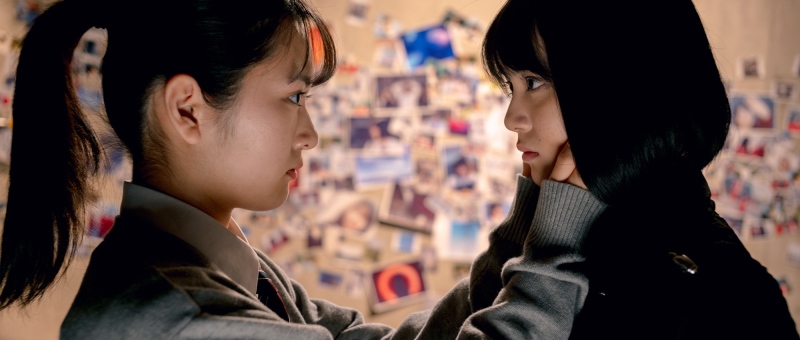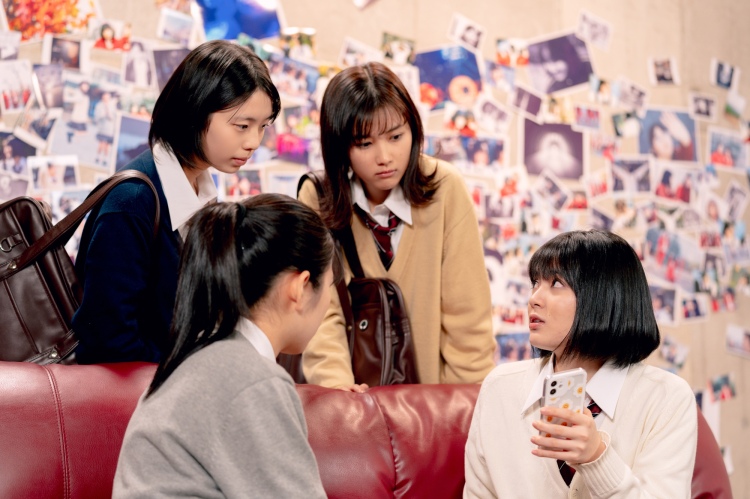
A young man with old-fashioned values is slowly consumed by the contradictions of the modern China in Zhang Wei’s indie drama, Redemption with Life (兄弟, Xiōngdì). The Chinese title translates as the more straightforward “brothers” and hints at the strong bond between the three men at its centre who each find that life has not turned out quite as they hoped. While one silently plugs away, another pushes the boundaries of the law, but the third allows himself to be pulled into callous inhumanity and the exploitation of the dreams of others while working for an enigmatic businessman running what is quite obviously a dodgy pyramid scheme.
As the film opens, Jianhua has just been released from a two-year prison sentence after taking the fall for the financial impropriety overseen by his boss, Li Gang. He is met by his two sworn brothers, fellow bikers Peng and aspiring photographer Shaofeng, and is intent on starting over described by Peng as some kind of financial hotshot though it’s surprising he would even be able to return to that line of work after being imprisoned for mismanagement. In any case, he ends up returning to Li Gang while justifying himself by using the vast amounts of cash he’s been given to repay victims who lost their life savings when the bottom finally fell out of the Ponzi scheme they’d been running.
Though his youthful dream was to travel the world, Jianhua is materially ambitious and ties his masculinity to his ability to become wealthy. After starting a relationship with a female biker, he gets deeper into the scam telling her that he wants to make enough money for them to go travelling while otherwise claiming not to be interested in the high life of fancy parties and expensive goods that Li Gang represents. She eventually leaves him because he caused her to feel insecure with all his dodgy dealings though he repeatedly fails to learn his lessons thinking he can solve all of his problems with money. Some debts must be repaid, he solemnly intones, yet as Peng reminds him there are some things that can’t simply be compensated for and some money you just shouldn’t make if causes you to act immorally.
Peng had given his dream as making a lot of money and seems to look up to Jianhua because he works in “finance”, but is otherwise happy enough with the life he’s made for himself running a motorbike garage which is mostly honest work except that he makes extra money by selling smuggled bikes to other bikers. He wants to help Jianhua but worries that he’s already in over his head and unable to escape the allure of his old life. Shaofeng meanwhile is financially stable and pursuing his art on his own terms, turning down an offer Jianhua gets him to work with some top gallery owners because on one level he knows if Jianhua’s involved it’s not legit and on another wants to do things his way even if he’s unsuccessful.
Skipping back and forth over a number of years encompassing time served in prison the film chronicles Jianhua’s corruption and eventual disillusionment in the realisation that he too is being scammed by Li Gang and his futile attempts to make money with money are forever doomed to failure. The suggestion is that he wants the high life he wanted to reject in order to secure his masculinity in a world now more ruled by the corporate even if this kind of corporatism is itself ruled by violence and vulgarity, not to mention a healthy dose of misogyny and female exploitation. Jianhua’s partner in crime, the similarly deluded Haitao, eventually renounces desire altogether and becomes a Buddhist monk to atone for the destruction his lust for riches wrought on those around him, though Jianhua’s solution is one of old-fashioned manliness that is predictably futile. Slowly, the biker convoy makes its way towards Tibet and a more spiritual place supposedly freer of the destructive consumerism that has already consumed Jianhua and ruined the lives of those he convinced to invest in a scheme he always knew was a scam not to mention morally wrong. A mild critique of the contemporary society ruled by status and acquisition the film’s advocation for an unconstructed masculinity may sit uncomfortably but does nevertheless make the case for a beneficial brotherhood over mutual exploitation.
Redemption with Life screened as part of this year’s New York Asian Film Festival.


















